Just type .svn in the search box of the File Explorer, then select and delete all search results (see JB Nizet's comment). This method can of course also be used to quickly delete the obj and bin directories, e.g. when organizing svn archives.
Although OP asked for a commandline solution, he also indicated using Windows, and considered a manual deletion, so the File Explorer method could still be considered, especially because it is the fastest method and does not rely on 'tools' like svn export.
Although OP already selected an accepted answer, this answer might still be useful for others. At least it was useful for me, a long time linux / windows user who prefers command lines and first learned about the search box by this post :-)

